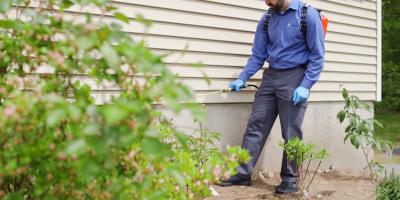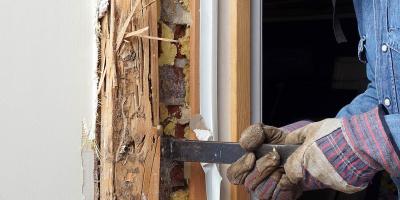Apartment Living And Pest Issues

You probably don’t need anyone else nagging you about this, but: clean your dishes! Apartment buildings and high-density housing complexes require constant pest control attention simply because of the sheer quantity of people living in one relatively small space. Furthermore, not every resident has pristine sanitation habits, and many tenants tend to leave food and liquids lying around — especially in the kitchen sink. If you want your apartment community to avoid a pest problem, educate yourself and your neighbors about how to keep the insect and rodent population to a minimum in your apartment complex.
Water Attracts All Kinds Of Pests
All living beings on the planet need water to survive. Many insects can survive for long durations of time without food as long as they have reliable access to water. Or course, it’s best to limit access to both sources of sustenance, but many apartment tenants don’t realize that leaving bowls or glasses in their kitchen sinks can invite foraging insects. Make sure that all of your faucets drain properly, and fix any leaks in your plumbing to prevent the provision of water sources. And we know it’s sometimes easier to clean your dishes after letting them soak for a while, but don’t let them sit for more than a day. Clean them and put them away when you’re done using them.
Bed Bugs Don’t Care Whether Your Room Is Messy Or Neat
People seem to have a misconception about bed bugs, thinking that they prefer to colonize in messy apartments or houses rather than a neat, clean residence. There are no scientific data to support this hypothesis. Bed bugs are attracted to heat, carbon dioxide, and blood, and pay little attention to how often an apartment’s residents vacuum the floors or take out the trash.
You should certainly keep your apartment clean and tidy, however, since ants, cockroaches, and rodents will gladly eat your scattered crumbs or old trash. Bed bugs, on the other hand, can survive wherever there is a warm blooded mammal to bite, which can be a disheveled college dormitory or a fancy five star hotel.
When Treating An Apartment Unit, Treat The Adjacent Units As Well
Insects travel. Despite your best efforts, many pests can enter your apartment from other infested units through air vents or spaces between walls. Bed bugs are especially easy to bring into a home by accident since they can cling to luggage while traveling or hide in used or recycled furniture. Once established in an apartment unit, bed bugs — as well as cockroaches and ants — can spread from one infested unit to others. Make sure to ask your landlord or property manager about their plan of action for surrounding units, not just your own.
Because many insects tend to be very mobile, apartment residents should understand that identifying the source of a pest infestation is crucial to their extermination. In other words, if you spot a bed bug in your apartment, make sure your apartment and all adjacent apartments are inspected thoroughly to that the source of the problem can be eliminated. In many cases, apartment residents will be exempt from service fees if it is determined that a neighboring unit was the cause of the infestation.
Of course, it’s unfair to expect your neighbors to keep a clean, pest-free apartment if you don’t keep a clean home for yourself!
Keep Your Apartment Clean
As we mentioned earlier, bed bugs don’t care if your apartment is messy or clean, but roaches, ants, and rodents do. While many pests will enter homes and apartments simply to escape the cold of winter, they may be enticed to extend their stay because of the availability of food and water. In these cases, sanitation goes a long way. By regularly removing trash and sweeping or vacuuming floors, you can decrease pests’ accessibility to resources. Store your food in tightly sealing containers. And again, cleaning your dishes is very important!
Insects are the worst roommates. The experienced professionals at JP Pest Services can prevent pests from moving in, and can exterminate bugs and rodents quickly and completely! Contact JP Pest Services to request a free residential estimate today.



